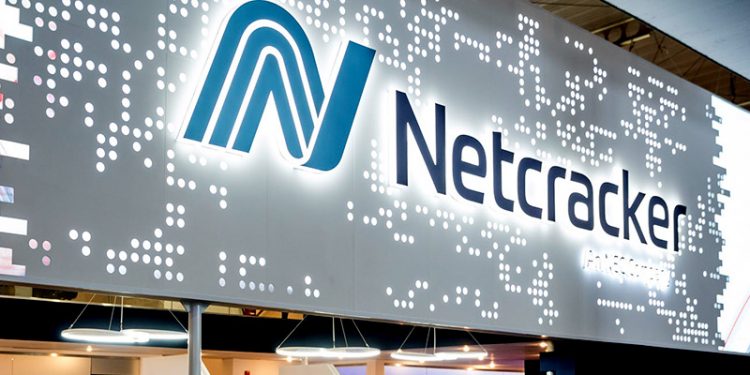Netcracker
Netcracker is a provider of business and operations support systems for network virtualization and software-defined networking. As a wholly owned subsidiary of NEC Corporation, the company provides managed and professional services to its clients. In addition to its products, Netcracker offers a range of other services, including consulting and training.
Netcracker is a provider of business support systems
Netcracker is a provider of business-support systems for IT departments. The company is focused on modernizing IT infrastructure and providing a flexible platform for agile development. Its cloud-native product line supports any type of cloud arrangement and offers continuous software updates. Netcracker delivers its software as a SaaS offering and supports continuous deployment with CI/CD.
Netcracker is a wholly owned subsidiary of NEC Corporation. It provides businesssupport systems, including software-defined networking (SDN) and network function virtualization (NFV). It also offers professional and managed services. Its headquarters is located in Waltham, Massachusetts, with development facilities around the world.
Netcracker’s offerings fall under five service domains: Business & Operational Consulting, End-to-End Turnkey Delivery, Agile Development & DevOps, Cloud Enablement, Managed Services, and Network Functions Virtualization. Netcracker’s business support systems can be customized to meet the needs of a company. It offers a full spectrum of business support systems and support, and it has a dedicated team to assist its customers and provide solutions and support around the clock.
Netcracker’s BSS solutions have been used by a variety of customers. Its customers include enterprises and communications service providers. Its BSS solutions are designed to help these companies launch new products and increase revenue. With the help of Netcracker’s Digital BSS, businesses can automate their customer lifecycle processes and launch new lines of business with less effort.
Operations support systems
If you’re looking for an OSS/BSS solution that enables you to automate your operations, Netcracker is a great option. Their cloud native product line supports hybrid environments, CI/CD deployment, and agile development to help you quickly bring new applications and features to market. And as a SaaS solution, they deliver continuous updates that keep your applications up to date.
As communications service providers continue to push the boundaries of innovation, Netcracker is becoming an increasingly important part of their overall business success. Their product line helps them deploy new services, increase operational excellence, and develop closer relationships with their customers. With a worldwide employee base of more than 1,000, Netcracker is a proven solution for implementing next-generation OSS.
Netcracker’s operations support systems are designed to ensure optimal business outcomes by mitigating the risks associated with complex systems. With over 30 years of experience, Netcracker can help you focus on your core business. And because they’re a partner, you can be confident that they understand your business processes.
As boundaries between networks and services become more fluid, CSPs must increase their automation level to keep up. This will help them unlock new revenue opportunities and enable new technologies. But to do this, they must create a new operational environment that is designed for automation. Netcracker’s automation solutions help CSPs meet these challenges by combining Digital OSS with orchestration functions and AI/Algorithms.
Software-defined networking
In the world of networking, software-defined technologies can improve network performance, agility, and management. With these new technologies, networks can be designed and managed programmatically, providing more control over data flow and provisioning. In particular, software-defined wide area networks are beneficial to organizations because they are capable of supporting multiple types of connectivity, including SDN, virtual private networks, and MPLS.
In contrast to traditional networking, software-defined networking uses softwarebased controllers and application programming interfaces to direct network traffic. This allows network administrators to manage network policies from a centralized controller instead of managing individual switches. A software-defined network architecture consists of three layers: an application layer, a control plane, and an infrastructure layer. These layers communicate with each other via southbound APIs.
A key benefit of SDN is that it enables network administrators to create different network segments for different workloads. In other words, SDN can optimize data flow and prioritize applications, as well as control network security. Moreover, it allows administrators to implement granular policies in the network for better network management.
Another major benefit of SDN is that it makes networks flexible and scalable. SDNs can be configured and expanded on demand, and administrators can automate repetitive tasks. This means that they can quickly add new services and remove old ones. SDNs also help reduce operational costs by eliminating the need to buy new hardware.
It is a wholly owned subsidiary of NEC Corporation
Netcracker offers a comprehensive range of Managed Services and Professional Services. These services include public cloud, private cloud, on-premises, and edge computing. The company also offers system integration, consulting, and solution delivery. Its suite of solutions includes virtualized network functions, SDN controllers, and customer premises equipment (CPE). Additionally, it offers a range of management and maintenance offerings.
Netcracker is based in Waltham, Massachusetts. It has development facilities across the U.S. and Russia, as well as in India and Ukraine. It also operates University Educational Training Centers in eight cities in Russia. Its products and services are used by telecommunication service providers, financial institutions, and government agencies, and are used by Fortune 500 companies and the U.S. government.
NEC has identified SDN/NFV as a strategic priority area, and is committed to providing simple, flexible, and secure next-generation network infrastructure for customers. In 2011, the company commercialized the world’s first OpenFlow controller/switch. Today, NEC offers SDN/NFV solutions for customer premises equipment, virtualized evolved packet core, and mobile virtual network operator offerings.
The company uses cloud-based infrastructure as its base for the NEC 5G Core. It provides a unified, open virtualized platform that unifies IT and network expertise. The solution is scalable and supports container technology. It also provides an endto-end network view. Its Cross-Domain Service Orchestration monitors resource consumption, apply a closed-loop control policy, and allocates bandwidth based on user requests.
Its products are used by service providers
Netcracker’s solutions modernize service provider operations and business environments, enabling them to innovate faster and increase revenues. These services help service providers streamline operations and maximize existing IT investments. Netcracker’s portfolio of products includes AI-driven customer engagement, digital partner ecosystems, and end-to-end service automation for cloud and hybrid services.
The company serves customers worldwide through an in-house direct sales team. Sales personnel are based in the company’s offices located in the US, UK, Japan, and the Philippines. Its products are used by service providers across the world, including major telecommunications companies and enterprises.
Netcracker has grown significantly since its founding in 1993. In addition to its SDN controller, Netcracker has a complete suite of Managed Services and Professional Services. These services are offered in Client-Hosted and Hosted delivery models. Professional Services include system integration, consulting, and solution delivery.
Netcracker is a leading provider of modernised BSS/OSS solutions for service providers worldwide. The company specializes in helping service providers transform their businesses and stay competitive. It also offers a SaaS-based solution with optimized revenue management capabilities. It has affiliates in Portugal, France, Israel, and the U.S.
The company’s solution has received approval from Covad, a leading national broadband service provider with a large DSL footprint. The carrier plans to deploy Netcracker’s OSS across its entire network. The solution will help Covad improve business agility, simplify core B2B processes, and increase E2E visibility.
It has a diverse workforce
Netcracker is an Internet company that employs a diverse workforce. About 42% of its employees are women and 58% are men. The company’s workforce is composed largely of members of the Democratic Party. The average tenure of an employee at Netcracker is 5.1 years, and the average salary is $96,639 a year.
Netcracker’s salaries are lower than those of its competitors. For example, the average salary at Netgear is $134,655, while F5 and Juniper Networks pay an average of $120,409 per year. This disparity is partly due to Netcracker’s small size.
Netcracker’s employees come from many different backgrounds and industries. They’re also well-versed in Netcracker’s product, which is cloud-native and designed to run on a hybrid cloud environment. Because of this, Netcracker has strengthened its position as a leader in helping service providers succeed in the digital economy.
Netcracker’s diversity is reflected in the company’s new suite of products, which have been enhanced for the 5G era and are built for the cloud. These new products empower service providers to create new functions and enhancements, and leverage an expanded security framework. The platform is also built for agility and incorporates Agile/DevOps practices.
The company’s diversity efforts have received positive feedback from its workers. In a recent survey of high-tech workers, 45% of respondents said that their workplaces were too white and male, while another third partially agreed or did not agree with the premise. When looking at respondents of different backgrounds, they also showed that differences between high-tech workers and employees of other industries exist. While white workers were more likely to disagree with the premise, non-white workers were more likely to strongly agree.


















